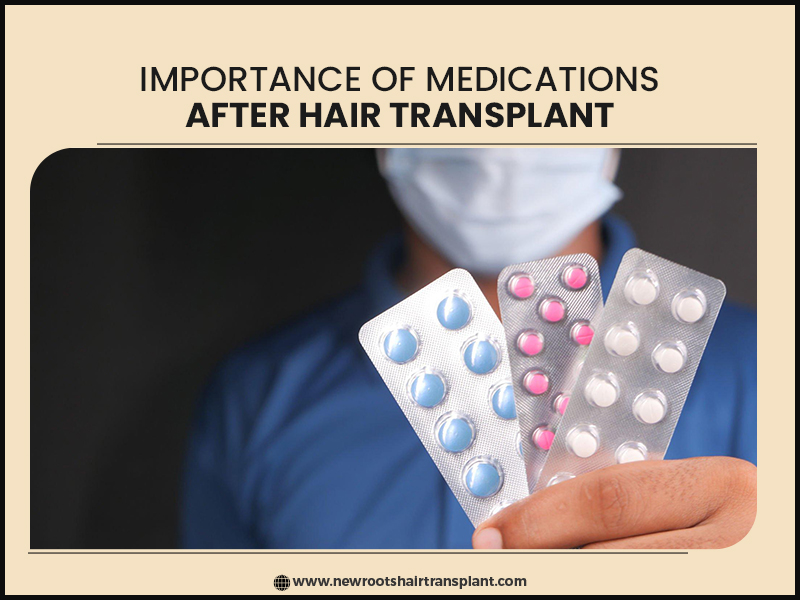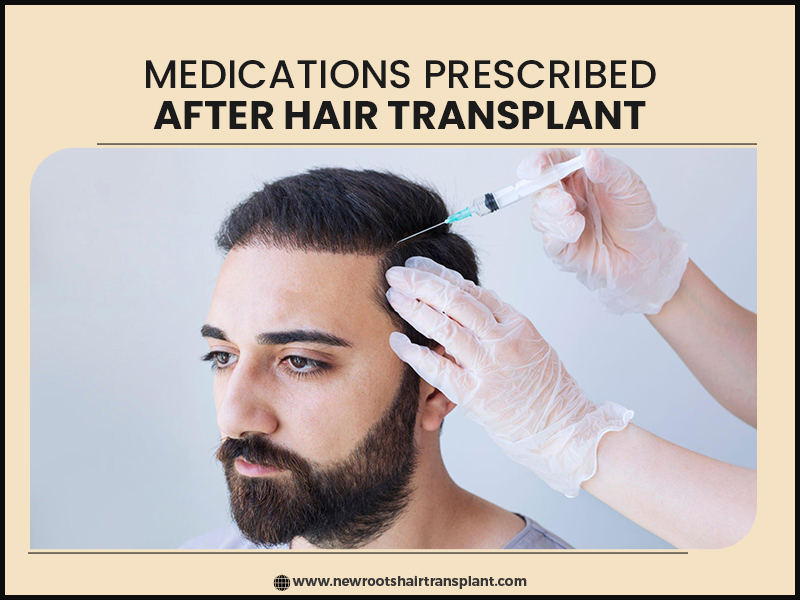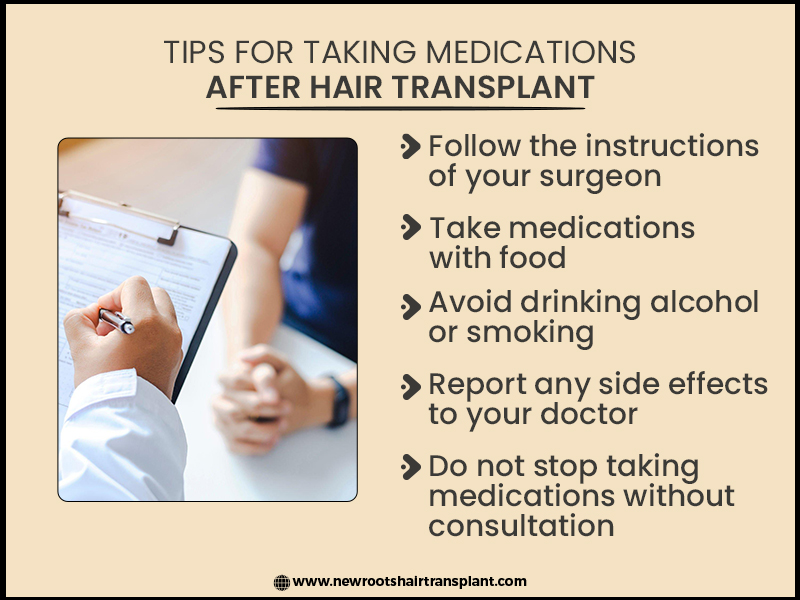
Hair transplant in India is a popular cosmetic procedure that can help restore hair growth in people with baldness or thinning hair.
It involves the removal of hair follicles from the back of the scalp and their transplantation to the recipient site.
However, after the procedure, patients need to take certain medications to ensure proper healing and prevent complications.
In this article, we will discuss the medications that are commonly prescribed after hair transplant surgery and their benefits.

Hair transplant surgery is a delicate procedure that involves the use of local anaesthesia, incisions, and stitches.
It is important to take care of the transplanted area after the procedure to promote healing and prevent infection.
Medications play a crucial role in this process as they help to:
Painkillers and anti-inflammatory drugs are prescribed to reduce pain and swelling after the procedure.
Antibiotics are prescribed to prevent infections that can occur due to the incisions made during the surgery.
Certain medications can help to promote healing and stimulate hair growth in the transplanted area.
Topical ointments and creams are prescribed to control itching and minimize scarring after the procedure.
Read More : HEAD WASH AFTER HAIR TRANSPLANT: ESSENTIAL TIPS FOR OPTIMAL RESULTS

Painkillers such as paracetamol, ibuprofen, or acetaminophen are commonly prescribed after hair transplant surgery to manage pain and discomfort. These drugs can be taken for a few days after the procedure.
Anti-inflammatory drugs such as naproxen or diclofenac are prescribed to reduce swelling and inflammation after the surgery. These medications are usually taken for a few days after the procedure.
Antibiotics such as amoxicillin or cephalexin are prescribed to prevent infections that can occur due to the incisions made during the surgery. These medications are usually taken for a week after the procedure.
Finasteride is a medication that can help prevent hair loss and promote hair growth. It is usually prescribed for several months after the procedure.
Minoxidil is a medication that can help stimulate hair growth in the transplanted area. It is usually prescribed a few weeks after the procedure and needs to be applied topically to the scalp.
Read More : WHEN TO USE MINOXIDIL AFTER A HAIR TRANSPLANT ?

Read More : ARE STEROIDS REQUIRED AFTER A HAIR TRANSPLANT? WHAT YOU NEED TO KNOW
The duration of medication depends on the type of medication prescribed and the individual's response to treatment.
Painkillers and anti-inflammatory drugs are usually taken for a few days after the procedure, while antibiotics may be prescribed for a week.
Minoxidil and finasteride may need to be taken for several months after the surgery.
No, it is important to complete the prescribed course of medications even if you feel better.
Stopping medications abruptly can interfere with the healing process and increase the risk of complications.
Most medications used after hair transplant surgery are safe and well-tolerated.
However, some medications may cause side effects such as nausea, vomiting, dizziness, or allergic reactions.
It is important to report any side effects to your doctor immediately.
Patients can usually resume their normal activities a few days after the procedure.
However, strenuous activities such as heavy lifting or exercise should be avoided for at least two weeks after the surgery.
Hair transplant surgery is a permanent solution for hair loss, as the transplanted hair follicles are taken from the back of the scalp, where hair growth is permanent.
However, the success of the procedure depends on factors such as the surgeon's expertise, the patient's overall health, and the extent of hair loss.
Taking medications after hair transplant surgery is essential to ensure proper healing and prevent complications.
Patients should follow the instructions of their surgeon regarding the dosage and frequency of medications.
In addition to medications, it is also important to follow a healthy lifestyle and avoid smoking and alcohol during the recovery period.
In case you have any doubt about the medications prescribed to you after your surgery, contact our team at New Roots Hair Clinic.
We provide you with complete support and a post-op regime that’s crafted specifically for you to assist you in achieving long-term results.